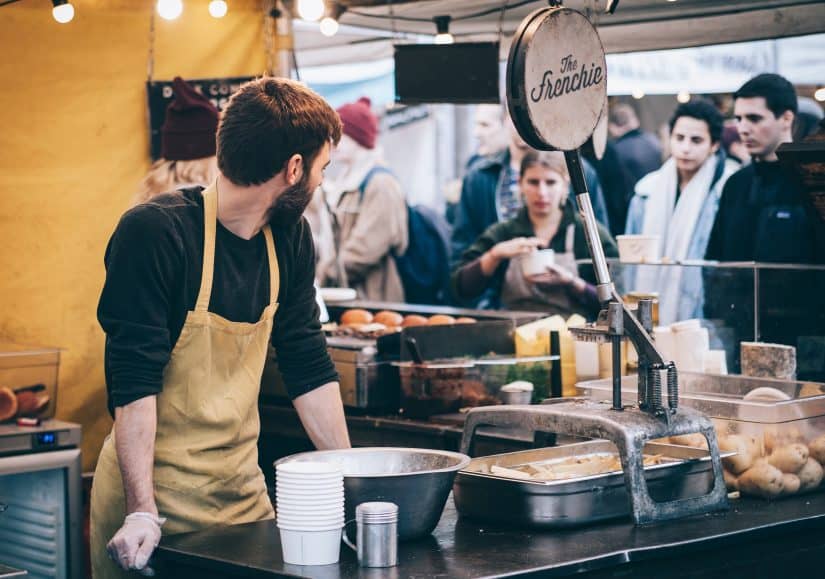The essentials to starting your market stall business
Immediately after entering the business owner life, you will be hit with a whole new world of rules and regulations that may seem foreign to the language that you’re accustomed to. However alienating all this information may be, it’s crucial you become familiar with the ins and outs of owning a business to ensure you succeed in your respective industry.
Did I just hear you say “but… I am not a Small Business I am just a Stall Holder” credit where credit is due. You are not just a Stall Holder, you have taken the leap to pursue your hobbies and dreams. You are officially a Small Business Owner, congratulations!
So, where do you even start when it comes to selling at a market as a business?
Many businesses at the markets did start out as a hobby, before expanding into a full-time business. FYI! Did you know – Tesco; one of the largest retailers in the world; began as a market stall? Just like fashion giant Sass & Bide, and smoothie moguls Innocent Drinks.
These successful brands were once in your position too. “Should I keep it simple or expand and push it as a business.”
With registering a business comes many other complex things that go hand in hand with becoming a business owner. This includes tax implications, understanding applicable legislation, standards for your products and the list goes on. We’re here to make this new chapter of running your market stall business that little less daunting and overwhelming.
Applying for markets
During the application process you will find the Market Organisers are asking for all sorts of things. Such as if you have Public and Products Liability Insurance, asking for a copy of your Certificate of Currency and requesting a set Limit of Liability.
Your Organiser is requesting this information as it is a requirement for their insurance or to use the venue. Especially if the market is held on council grounds. Though in general business terms, insurance is something that every individual or business selling goods should consider anyway.

Why do I need insurance for my market stall business?
A Public and Products Liability policy is designed to not only pay compensation for valid claims, but also assist with defending a claim brought against you.
Picture this – A third-party contacts you after a weekend market, and claims your goods caused injury to them. Instead of stressing about a potential claim or financial hit, you simply have to contact your Insurer. They will guide you through the entire process while dealing with the third party on your behalf. Even if a valid claim is yet to be made, your insurer will be there to assist you as soon as liability is determined.
In an instance that you are found liable, you will have an enormous financial problem to solve, that will quickly involve other aspects of your life. Are you willing to sell your house and possessions to afford this cost?
This is unfortunately the reality of what can potentially happen if you do not take out Insurance for your business. Insurance not only protects your business, it safeguards your livelihood also.
What is liability insurance?
Liability Insurance is not only a requirement it is Your safety net! If you are found liable for Personal Injury or Property Damage, Liability Insurance will save the day or even your house! A Liability Insurance policy can be made up of Public Liability only, or Public & Products Liability cover.
Public Liability
Public Liability Insurance is designed to protect You and your business against claims resulting from injuries or property damage that occur as result of your Stall Holder/business activities.

Market stall business owners have a responsibility for the safety of their customers, employees, suppliers and the community, as well as third party property.
Products Liability
Products Liability gives protection against financial loss arising from the legal liability incurred by an insured entity, because of injury or damage resulting from the the covered product. In other words, Personal Injury and Property Damage arising from the Products you sell. For those selling goods, this is an invaluable and compulsory investment.


